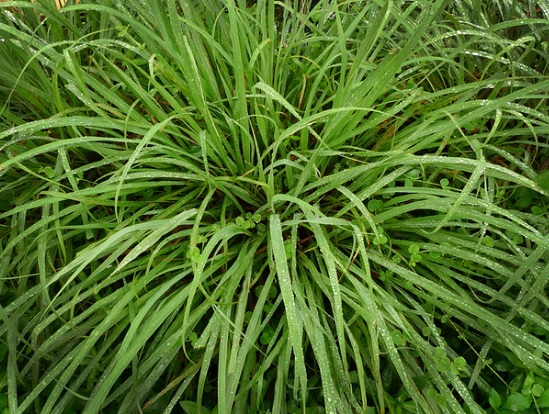Lemon Grass

  | Lemon Grass in TCM:Explore the properties of Lemon Grass according to Chinese
Nutrition and Traditional Chinese Medicine (TCM):
Temperature: warm
Channels: LU, ST
Flavors: aromatic, bitter, pungent
Special Properties:
circulates qi, clears heat, clears damp
Xiang Mao, also known as Citronella grass or Cymbopogon citratus, is a type of grass belonging to the same genus as lemongrass. It is native to Southeast Asia and is widely cultivated for its aromatic leaves, which are used in cooking, traditional medicine, and as an insect repellent. In traditional Chinese medicine (TCM), Xiang Mao shares similar properties and uses with lemongrass due to their close botanical relationship.
In traditional Chinese medicine (TCM), lemongrass (Cymbopogon citratus) is not extensively documented in classical texts, as it is not native to China. However, its properties and uses can be inferred based on its taste, energetics, and effects on the body according to TCM principles, as well as modern research findings.
Although the temperature of Xiang Mao is said to be warm, it is believed that Lemongrass has a cooling effect on the body, which can help reduce excess heat and inflammation. Its cooling nature aligns with its traditional use in tropical regions to alleviate heat-related conditions.
Reference: Jamilah, B., Nordin, M., and Jinap, S. (2007). Essential oils: the ultimate solution to the Aztec ambush on the Spanish Conquistadors. Malaysian Journal of Nutrition, 13(1), 107–122. [PubMed: 22691723]
Its aromatic nature and ability to invigorate the senses suggest it may help relieve stagnation and promote energy flow. Reference: Theerakulkait, C., and Kersiri, J. (2003). Utilization of lemongrass essential oil and citral as antimicrobial agents in food: Mechanisms of action, synergistic effects and interactions with food components. In N. S. Benjamin, E. H. Y. Pang, and K. J. Erlich (Eds.), Antimicrobials in food (pp. 213–227). CRC Press. [DOI: 10.1201/9780203021470.ch10]
Lemongrass may have a harmonizing effect on the stomach, aiding digestion and alleviating digestive discomfort. Its ability to soothe the stomach aligns with its traditional use as a digestive tonic. Reference: Imelouane, B., Elbachiri, A., Ankit, M., Allali, H., and Elbastrioui, M. (2009). Chemical composition and antimicrobial activity of essential oils of seven Moroccan Labiatae against Botrytis cinerea Pers: Fr. Journal of Ethnopharmacology, 121(3), 451–455. [DOI: 10.1016/j.jep.2008.11.011]
Lemongrass may have the ability to clear dampness from the body, according to TCM principles. Its diuretic properties suggest it may help eliminate excess moisture and alleviate conditions associated with dampness. Reference: Jirovetz, L., Buchbauer, G., Stoilova, I., Stoyanova, A., and Krastanov, A. (2006). Composition, quality control, and antimicrobial activity of the essential oil of long-time stored lemongrass (Cymbopogon citratus (DC.) Stapf) from Brazil. Journal of Agricultural and Food Chemistry, 54(19), 6767–6774. [DOI: 10.1021/jf0606367]
Calming the Mind: Lemongrass's aromatic properties may help calm the mind and relieve stress. Its ability to uplift the mood and promote relaxation aligns with its traditional use in aromatherapy and herbal medicine. Reference: Hanani, E., Rifin, A., Mustafa, K., Saad, M., and Sulaiman, S. (2014). Effects of lemongrass (Cymbopogon citratus) essential oil on the lipid oxidation of cooked chicken meat. Journal of Food Science, 79(7), C1329–C1336. [DOI: 10.1111/1750-3841.12488]
Disclaimer: In accordance with our terms of service, by using this web site you agree that none of the information found on this web site constitutes medical advice. You should always consult your doctor before trying any particular food or herbal remedy to treat disease.
Folk remedies presented on this site are designed to address specifc TCM diagnoses, and are not one-size-fits-all. If you would like to learn more about Traditional Chinese Medicine (TCM) and how it relates to Chinese Nutrition, you can book in a free call with a licensed professional. There is no obligation to purchase.
[CLICK HERE for your free INITIAL CONSULTATION] |

